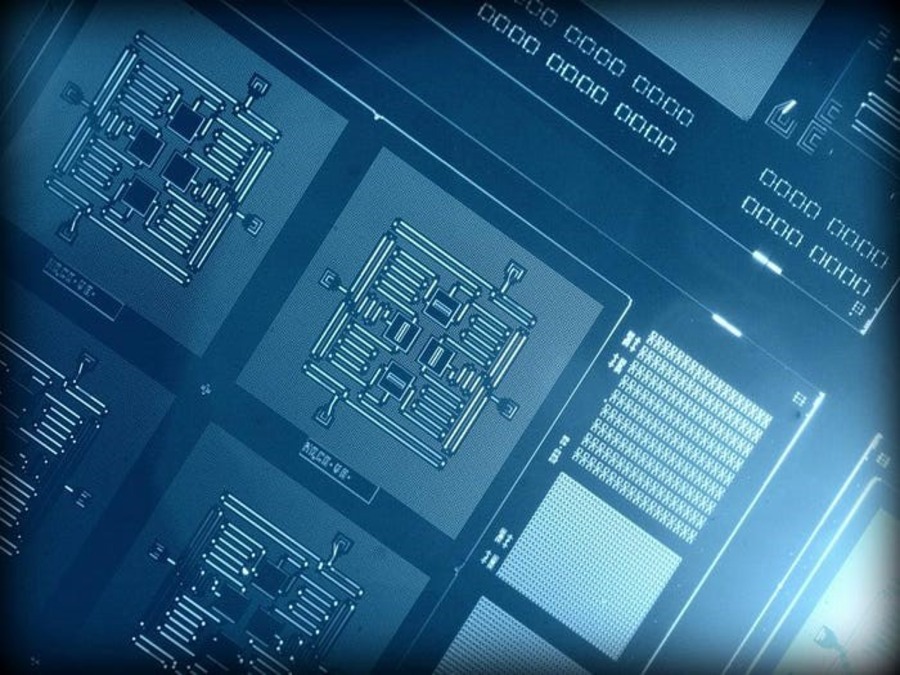Introduction
Quantum computing, which promises a radical change in how we process information, stands as a ray of hope in the world of technology’s constant advancement. Traditional computers have fueled human advancement for decades, but they are no longer capable of effectively handling complicated issues. The unusual laws of quantum mechanics, on the other hand, are harnessed in quantum computing to process information in completely novel ways. The foundations of quantum computing, its prospective uses, and the difficulties that still lie ahead in this ground-breaking science will all be covered in this blog.
Quantum World Understanding
We must dig into the intriguing world of quantum mechanics in order to understand the idea of quantum computing. Traditional computing relies on bits, which can only be either 0 or 1. Qubits, which can simultaneously exist in a superposition of 0 and 1, are used in quantum computing, in contrast. Due to the ability to run several calculations at once, quantum computers have exponentially more computing capacity.
Entanglement, in which qubits are linked together in such a way that their states are affected even when they are separated by great distances, is another essential characteristic of quantum computing. This phenomena creates previously unimaginable opportunities for communication and information processing.
Quantum computers are an enabling technology that will eventually become a part of the High-Performance Computing (HPC) ecosystem, alongside CPUs, GPUs, and TPUs, as a Quantum Processing Unit (QPU). (SOURCE : https://www.thefastmode.com/expert-opinion/32408-quantum-computing-unleashing-a-new-era-of-computational-power)
Modern Quantum Computing Advances
- Quantum Supremacy: Sycamore, Google’s quantum computer, made history by proving quantum supremacy by completing a task considerably faster than the most sophisticated classical supercomputers could. This occasion signaled a turning point in the field and demonstrated the versatility of quantum computers.
- Error Correction: To reduce the effects of noise and decoherence in quantum systems, error-correcting codes are essential. We are getting closer to creating fault-tolerant quantum computers thanks to advances in the development of more reliable error-correction methods.
- Quantum Volume: In order to gauge the total effectiveness of quantum computers, IBM developed the idea of quantum volume, which takes into consideration the quantity of qubits, error rates, and coherence times. A more comprehensive understanding of the real potential of quantum hardware is provided by Quantum Volume.
- Quantum Cloud Services: Researchers and developers can now remotely use quantum processors thanks to the quantum cloud services being offered by tech behemoths like IBM, Google, and Amazon.
Potential Impact on Industries
- Finance: By enabling real-time risk assessment, optimizing investment portfolios, and modelling intricate financial systems, quantum computing has the potential to revolutionize finance. This may result in better decision-making and increased market stability for financial products.
- Healthcare: The creation of new drugs can be greatly accelerated via quantum simulations. Quantum computing has the potential to accelerate and improve medication development by precisely simulating complicated molecular interactions.
- Artificial Intelligence: Algorithms for quantum machine learning offer the potential to speed up AI training and provide better solutions to optimization issues. The combination of AI with quantum computing may lead to important developments in a number of domains.
Future Directions in Quantum Computing
- Quantum Error Correction: Error correction will become progressively more crucial as quantum computers grow bigger and more potent. Better fault-tolerant quantum computers and error-correcting codes are being developed through ongoing research.
- Quantum Algorithms: Researchers’ main area of interest will be the creation of quantum algorithms. To realize the full potential of quantum computing, new algorithms must be developed that are exponentially faster than their classical counterparts.
- Quantum Communication: In order to improve data security, developments in quantum cryptography and quantum key distribution will be crucial.
Applications of Quantum Computing
For solving complicated problems that are currently beyond the capabilities of classical computers, quantum computing holds enormous promise. The following are a some of the more intriguing possible applications:
- Cryptography: Many of the present encryption techniques can be broken by quantum computers, endangering the confidentiality of internet conversations. To address this issue, they also provide quantum-safe encryption methods.
- Drug Discovery: The exact modeling of molecular interactions by quantum simulations can speed up the development of novel materials and drugs.
- Machine Learning: Algorithms for quantum machine learning may perform better than those for classical machine learning in some situations, especially when managing enormous volumes of data.
By incorporating quantum computing techniques into software development practices, developers can harness the power of quantum machine learning, uncover hidden patterns, and extract insights that were previously unattainable with classical computing methods. (SOURCE : https://insights.daffodilsw.com/blog/quantum-computing-applications-for-software-development)
Challenges in Quantum Computing
Quantum computing has amazing potential, but there are significant obstacles to overcome.:
- Qubit Stability: Calculation errors can result from qubits’ extreme fragility and susceptibility to outside noise. Building dependable quantum computers requires the development of error-correction methods.
- Scalability: The maintenance of entanglement and coherence as more qubits are added presents enormous technical problems in the construction of large-scale quantum computers.
- Quantum Decoherence: Quantum information is exceedingly fragile and is susceptible to rapid coherence loss. For conducting complex computations, increasing this coherence time is crucial.
Conclusion
A potential technological frontier has emerged in quantum computing. Despite being in its infancy, the potential it has is astounding. It has the potential to transform industries like drug discovery, optimization, and cryptography, having an impact on our lives in ways we are still not completely aware of. However, significant funding, interdisciplinary cooperation, and technological advances in both hardware and software are necessary to fully exploit the potential of quantum computing.
The day when quantum computing permeates our technological environment is becoming closer as we carry on researching and overcoming the obstacles. We will unquestionably reach new levels of innovation and knowledge if we embrace this disruptive technology with deliberate thought and curiosity. In the next few years, we can expect the major players in quantum computing, along with a select group of start-ups, to gradually increase the capacity of their computers in terms of qubits.
(SOURCE : https://insights.daffodilsw.com/blog/quantum-computing-applications-for-software-development)

